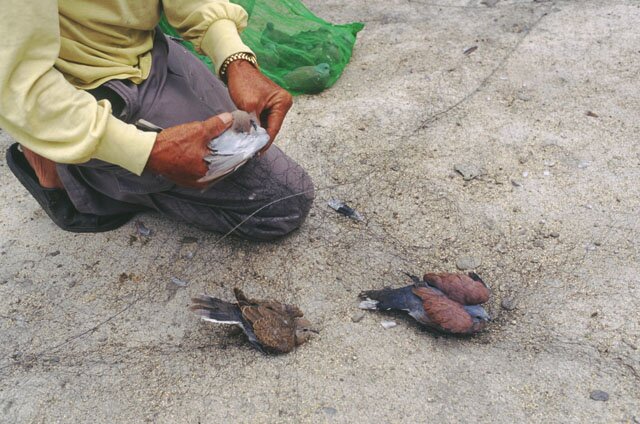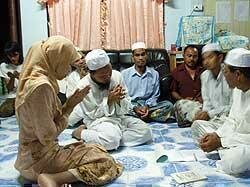BROWSE COUNTRIES/ TERRITORIES
From Persia to the Islamic Republic
If the Nazis won, Hitler might have proclaimed their new empire Iran.
The name Iran means "Land of the Aryans", a people who lived in modern day Iran between 3000 and 2000 BC. This association is why some prefer to call their country Persia.
At its peak during the middle of the first millenium BC, the Persian empire reached across central Asia to the doorstep of India on one side and Greece on the other. Even when it finally fell, the country remained prominent, occupying an important position on the ancient trade routes between the east and the west.
Persia was home to the prophet of Zoroastrianism, a religion that dominated the country till it was conquered by invading Muslim forces in 637 AD. The people resisted the new religion but over time, they eventually converted to Islam. However they retained their identities as Persians, a culture distinct from the Arab conquerers. Even today, they are the only country in the Middle East, apart from Israel, with a dominant language that is not Arabic.
Like the rest of its neighbours, Persia was caught up in the territorial ambitions of the European colonial powers. Russia and Britain carved for themselves zones of control, and the British struck black gold when a major oil field was discovered in 1908. The following year, the Anglo-Iranian Oil Company, now known as British Petroleum or BP, was set up. It was also around then that a constitutional revolution forced the creation of a parliament under the king.
A military coup finally terminated the reign of Iran's ineffectual monarchs reign in 1921, but officer Reza Khan had imperialistic ambitions of his own. Khan made himself shah and started the equally corrupt Pahlavi dynasty which would rule Persia till 1979.
Under his son, reforms were instituted, and the decades of exploitation by western powers very nearly ended when the parliament voted to nationalise the oil industry. Furious at their sudden loss of profits, Britain convinced the United States to help depose the democratically-elected Prime Minister Mohammed Mossadegh through covert CIA operations.
Iran under Shah Pahlavi was pro-western and Israel-friendly, but all that changed in 1979 when simmering opposition against the Shah's excessiveness and cruel oppression under the SAVAK intelligence services came to a head. Demonstrations broke out, fuelled by the populist ideology of exiled cleric Ayatollah Khomeini. Constitutionalists, marxists and islamists marginalised under the secular Shah rallied together. With defeat imminent, the Shah fled, his supporters were executed en masse and a referendum declared 98% support for the establishment of an Islamic Republic in Iran.
Login or Register
 Dan-Chyi Chua began her writing career with Channel News Asia, a regional cable network, before forsaking broadcast journalism to hit the road for a three-year sabbatical through the Middle East, China, Central America and Cuba. She has now grounded herself as a writer for asia! Magazine.
Dan-Chyi Chua began her writing career with Channel News Asia, a regional cable network, before forsaking broadcast journalism to hit the road for a three-year sabbatical through the Middle East, China, Central America and Cuba. She has now grounded herself as a writer for asia! Magazine.
- Asian Dynasties and History
- Conservation of the Environment
- Definition: Culture
- Economy and Economics
- Food and Recipe
- Geopolitics and Strategic Relations
- Health and Body
- Of Government and Politics
- Religion and Practices
- Social Injustices and Poverty Report
- Society, Class and Division
- Unrest, Conflicts and Wars

































 Another Point
Another Point From Jerusalem to the West Bank
From Jerusalem to the West Bank
Comments
Post new comment